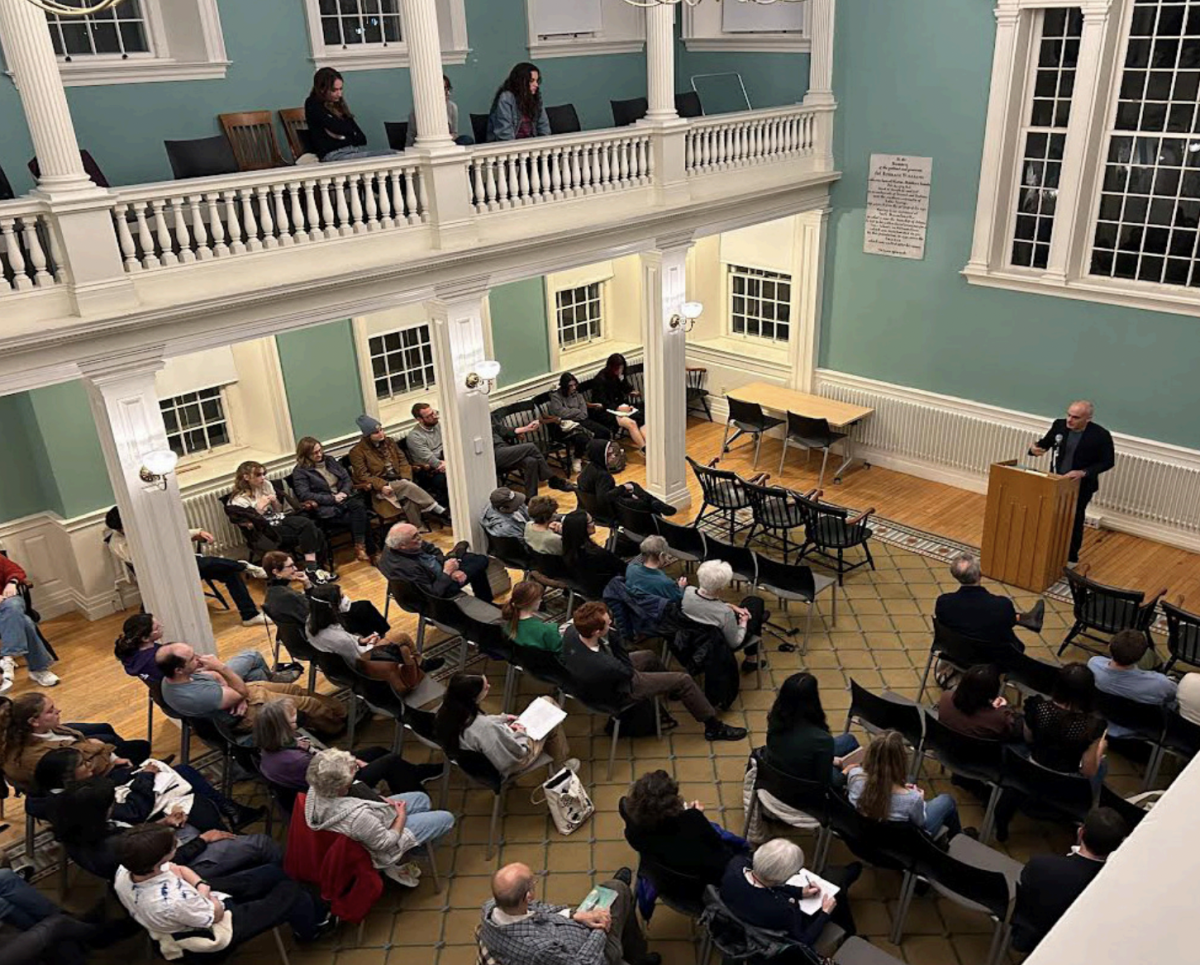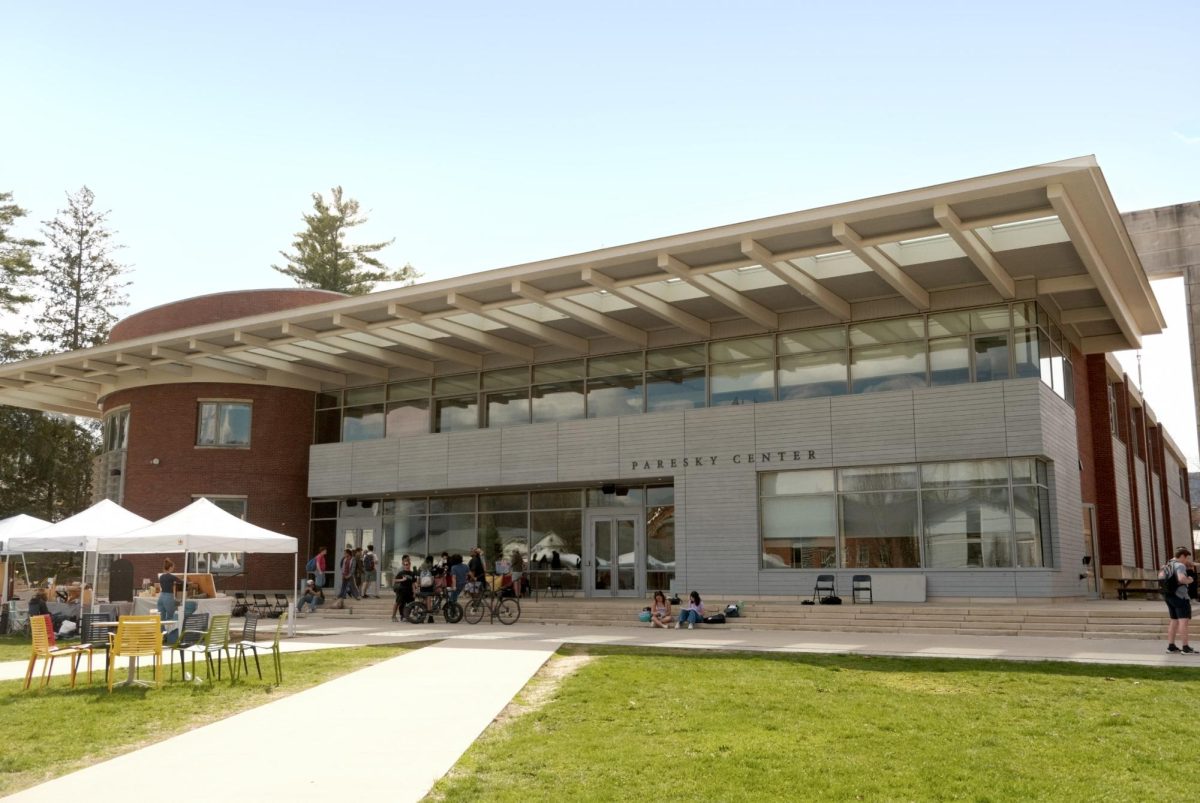On Oct. 18, author Hernan Diaz read from his Pulitzer Prize-winning novel Trust and discussed his background, work, and writing process to an audience of about 75 students, faculty, and Town residents. The event was hosted by the Departments of English and Comparative Literature, the programs in Latino/a Studies, the Oakley Center, the Lecture Committee, and the Class of ’46 Fund for World Brotherhood.
Trust centers on the life of a wealthy financier and his wife in the early 20th century and is primarily concerned with wealth, influence, and the force of capital in American history. In addition to Trust, Diaz is the author of In the Distance, a finalist for the PEN/Faulkner Award for Fiction and the Pulitzer in 2017. He also published Borges, Between History and Eternity, a book about the work of Argentinian surrealist writer Jorge Luis Borges, in 2012.
Diaz was born in Buenos Aires, Argentina, and spent his childhood in Argentina and Sweden before moving to the United States in 1999 to pursue a PhD at New York University. He now lives and writes in New York, where he also edits the journal Revista Hispánica Moderna at Columbia University.
At the talk, Professor of English Jim Shepard introduced Diaz to the audience. “Hernan Diaz is not only someone whose work restores one’s hope that our national culture is not, in fact, circling the drain — he’s also someone who, in interpersonal interactions, restores one’s faith in connection,” Shepard said. “Despite having received the kind of accolades that would turn the head of Jesus of Nazareth, he seems to have remained modest, kind, generous, and aware of the usefulness of humility.”
Diaz began the event by reading a passage from Trust’s first section, which follows a character named Helen during a childhood sojourn to Europe with her aristocratic but penniless family. Trust unfolds over four sections, each told in a slightly different style. In Trust, Diaz provides a close study of money’s power and influence in the United States and an outsider’s perspective on American capitalism. During his talk, Diaz didn’t describe the plot of his second novel explicitly.
Audience members also asked Diaz about the source of his inspiration, his outlining process, and his experiences living in three countries before he began his writing career. Diaz explained that he always felt a strong affinity for American culture. New York City immediately felt familiar to him thanks to movies and pop culture, he said.
Diaz’s research process for Trust involved reading financial memos and briefs from the 1920s in order to grasp the financial language of that time period. He explained to the audience that he wanted to avoid accidental anachronism. “Money talk, just like tech talk, becomes obsolete very quickly,” he said.
Diaz’s longest answer came as a response to a question about how he finds the confidence to write with authority on a subject. “I don’t think I have any authority,” he said. “It’s a very uncomfortable place of enunciation, the lack of authority. I mean it. I don’t view myself as an authority on the West [the subject of In the Distance]. I certainly don’t view myself as an authority on finance.”
Diaz returned to that idea of authority at the end of his talk. “If we need a voice of authority to write fiction, then I’m at a loss as to what fiction is there for,” he continued. “I do believe there is a tone of authority that’s important to convey. I want the reader to ask the right questions about the story and not whether I should be telling the story or not.”















